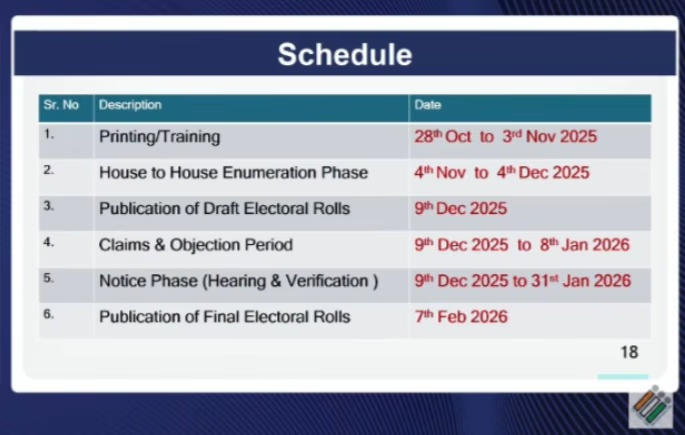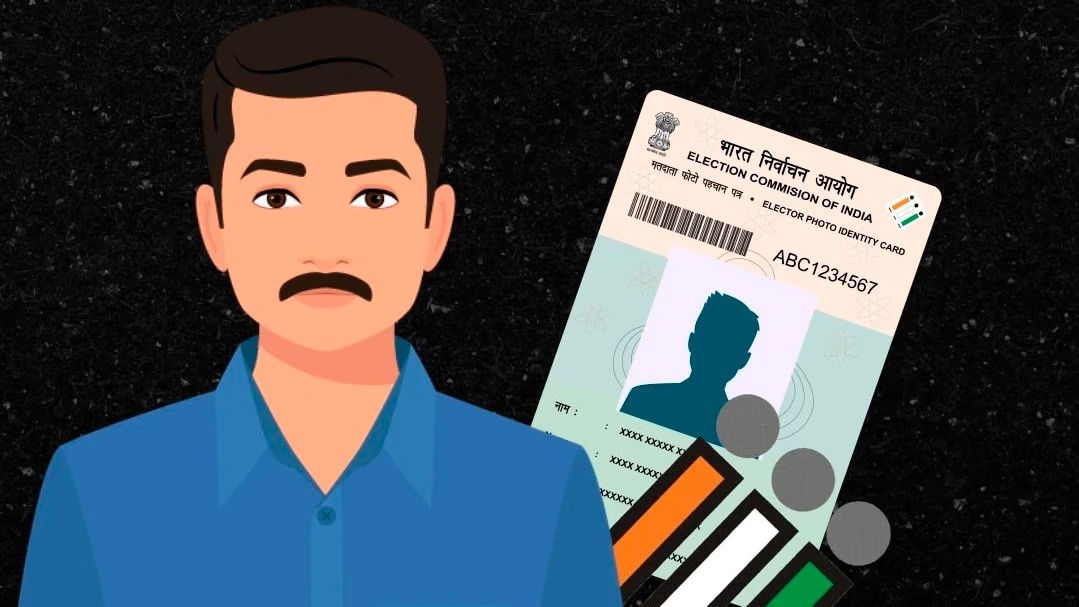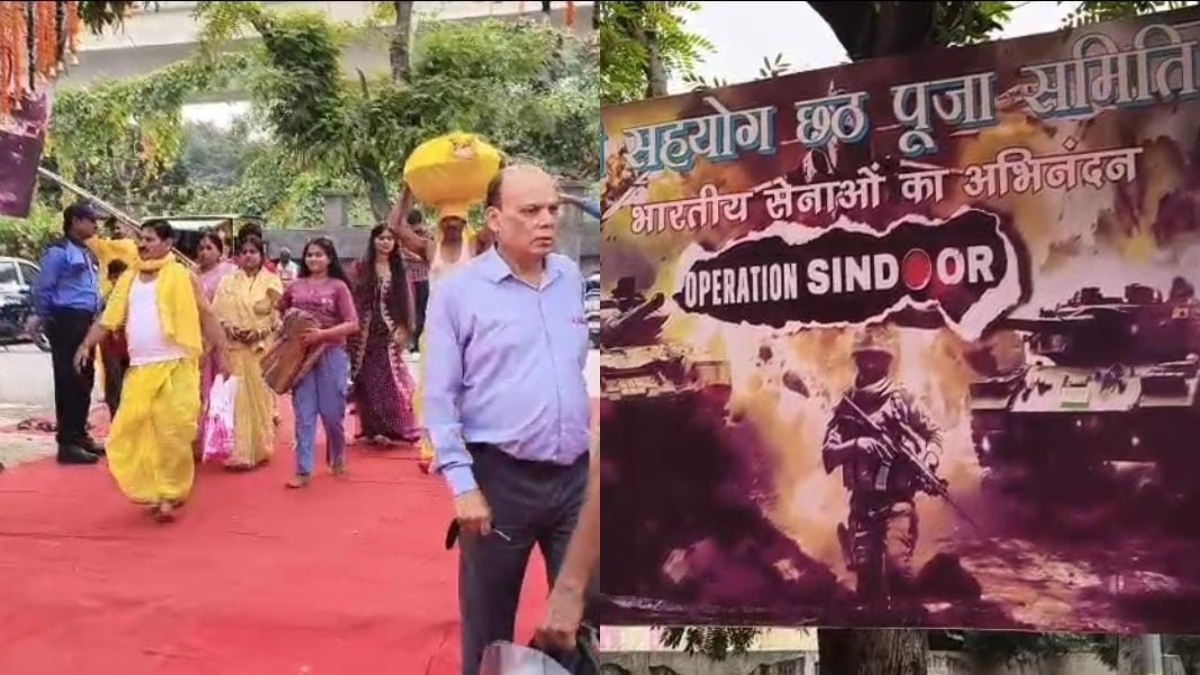The Chief Election Commissioner Gyanaesh Kumar announced the second phase of SIR on Monday. The program for the Special Intensive Revision (SIR) has been finalized. Approximately 510 million voters across the country will have their names, addresses, and details verified. This phase will include 12 states and union territories: Uttar Pradesh, Madhya Pradesh, Rajasthan, Chhattisgarh, Gujarat, Goa, Kerala, Tamil Nadu, West Bengal, Puducherry, Andaman and Nicobar Islands, and Lakshadweep.
According to the Election Commission, SIR will commence on November 4, with the final electoral roll to be published on February 7, 2026. The entire process will be conducted in multiple phases.
Check the Complete Schedule
From October 28 to November 3, 2025, printing and training will occur, followed by house-to-house enumeration from November 4 to December 4, 2025. A draft electoral roll will be released on December 9, 2025. The process for filing claims and objections will run from December 9 to January 8, 2026, while hearings and verifications will continue from December 9 to January 31, 2026.

Source: aajtak
BLO to Visit Houses Thrice
The Chief Election Commissioner mentioned that 533,000 Booth Level Officers (BLOs) and 764,000 booth agents from political parties will participate in this campaign. Each BLO will visit every household at least three times to add new voters and rectify errors. They will collect Form-6 and Declaration Form from houses, assist new voters in completing forms, and then hand them over to the Electoral Registration Officer (ERO) or Assistant Electoral Registration Officer (AERO).
Read More:
Maximum of 1200 Voters per Polling Station
Gyanaesh Kumar also cited that the commission has ordered that no polling station should have more than 1,200 voters to maintain a smooth and efficient process. He stated that Chief Electoral Officers (CEOs) and District Electoral Officers (DEOs) in all states and union territories have been instructed to meet with political party representatives to brief them about the SIR process. Additionally, it will be ensured that elderly, disabled, sick, and vulnerable groups face no difficulty in form filling and verification, with volunteers appointed for assistance.




